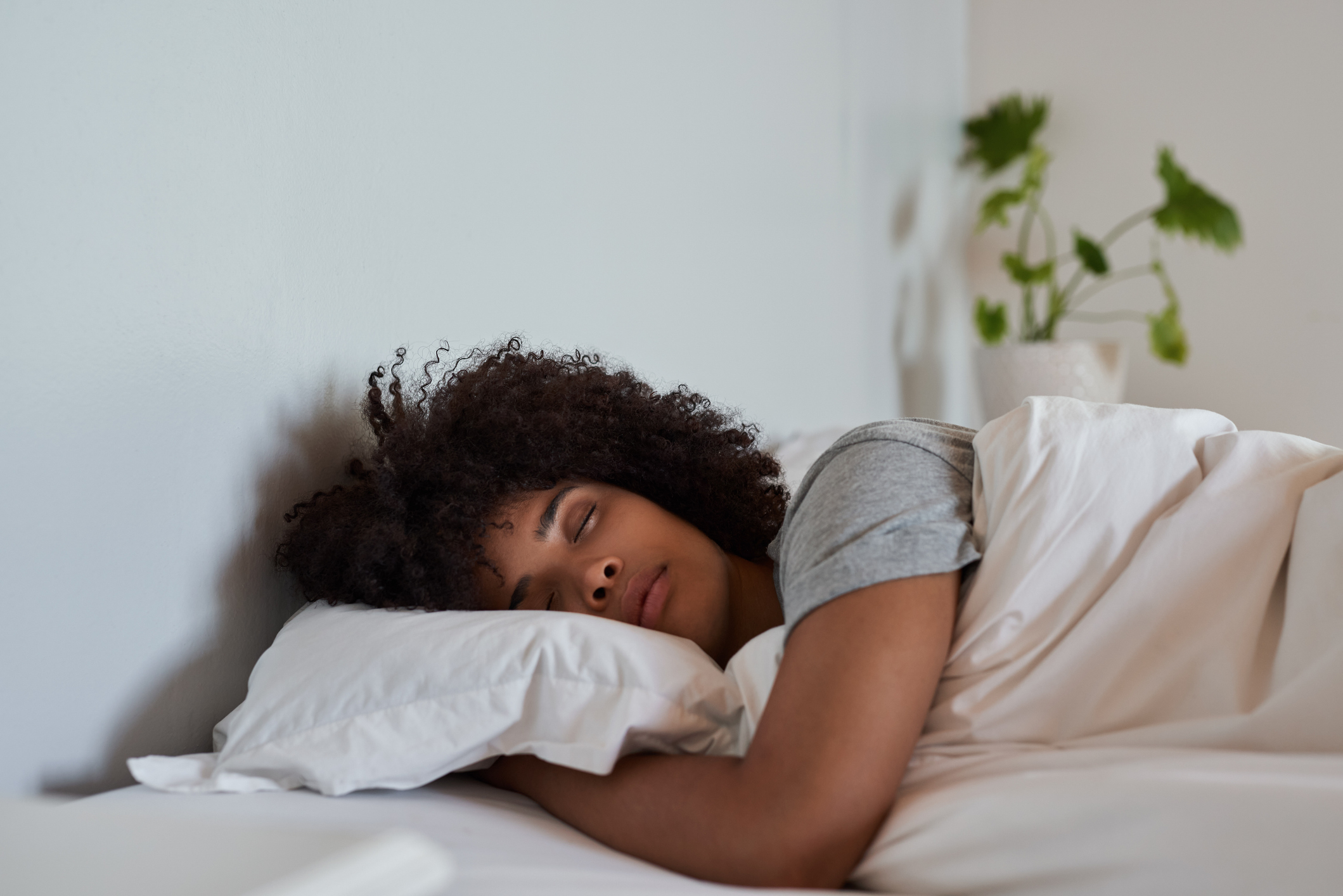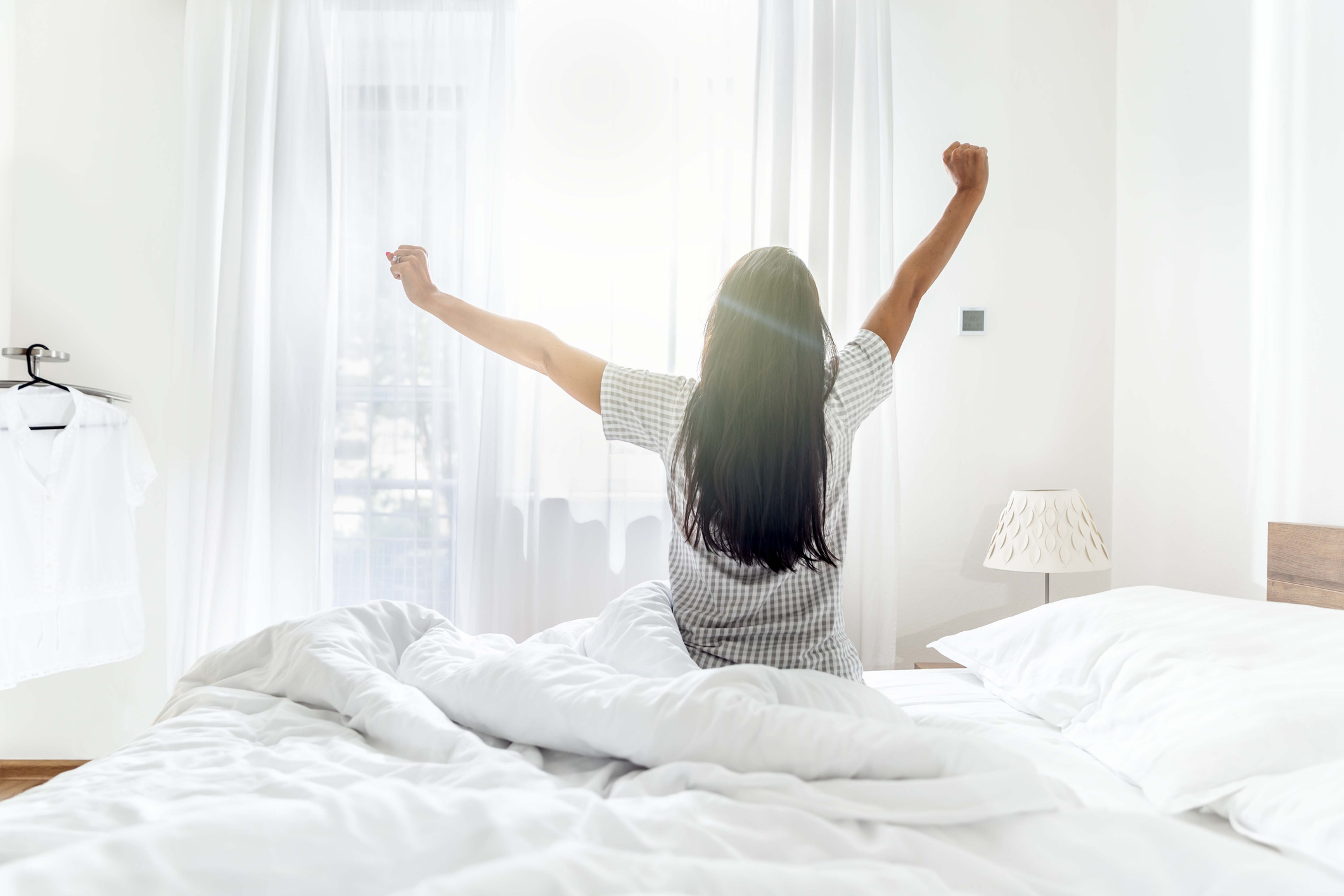" At this point , I am just a bag of cortisol with leg . "
Healthcare professional Jordan Bruss recently went viral for sharing this sleep warning:
sound slumber hygienics is a big part of my physical and genial wellness . I call I would not be in the shape I am in without doing some serious inquiry in the deep sleep department . Do n’t cause yourself spare physical and genial stress . redundant cortisol levels make you win and hang on to weight . So when the consternation goes off , it ’s time , get up . You ’ll reckon and feel better!#fyp#sleep#sleephygiene#cortisol#cortisollevels#healthylifestyle#healthcoach#lifecoach#nursecoach
In her TikTok, which has over 10 million views, she says, “If you’re somebody who sets multiple alarms, I have bad news for you. Don’t come for me. I’m just trying to help. Waking to multiple alarms every morning can really disrupt your REM cycle, frequently.”
“This can actually cause sleep inertia, increased drowsiness, fatigue, mood swings, and it also raises your cortisol levels. Every time your alarm goes off, you’re in that fight or flight response. Waking up like that multiple times in the morning is very stressful. So, when that alarm goes off in the morning, get up,” she concluded.
People immediately felt seen for having multiple alarms:
And they did not like the information at all:
A lot of people struggle with the oomph to get out of bed, so the multiple alarms are necessary:
Someneedthem or they won’t wake up at all:
So, to get more information about this, BuzzFeed connected with Jordan Bruss, RN-BSN, who has been practicing for nine years. She explained that the first alarm in the morning can break yourREM (or dreaming) cycle*and cause fragmented sleep. “In the early morning, before we wake up, we are in that active dreaming state. If you’ve had your full seven to nine hours when the alarm goes off, you should be ready to wake, and it won’t cause too much disruption. But, if an alarm goes off while you’re in deep sleep, it canactivate your flight or fight response. The stress may be worsened by continuing to wake up to extra alarms.”
A study conduct in Japanshows that those extra five transactions of sleep increments when pressing snooze can increase sleep inertia . " Dipping in and out of REM sleep repeatedly can make grogginess , sluggish thinking , and disorientation , " Bruss added .
To get the best sleep possible, Bruss suggestsgoing to bed seven to nine hours before you want to wake up— even on your days off. Getting the proper amount of sleep regularly can help you avoid the need for multiple alarms. And, Bruss says, it is most ideal to regulate your circadian rhythm, yourbody’s natural 24-hour clock that regulates sleepiness and alertness cycles, so it knows when to wake up on its own without an alarm. Some ways youcan do this are bykeeping a regular schedule/bedtime routine and being physically active. “Staying off a screen one to two hours before bed and getting 10 minutes of morning sunlight can also regulate your circadian rhythm.”
In terms of sleep cycles, Bruss said light sleep occurs when you first fall asleep, and your brain and body are not yet relaxed. “Your body will eventually transition to a subdued/relaxed state where your body temperature will drop, your muscles relax, your breathing and heart rate slow, and you’ll begin to transition into deep sleep. Deep sleep is where the magic happens. This is restorative sleep. Your mind resets itself, clearing out all of the junk from the day, and it sorts through memories and thoughts. Your body will repair and recover (muscle growth happens in this stage for weight lifters) and enhance your immune system. REM sleep is where your brain activity keys back in, and you’re dreaming. It’s really important for cognitive function and memory! All stages are important for mental, emotional, and physical health.”
Bruss and otherexperts agreethe best and most natural way to wake up is with direct morning sunlight. “For all of us healthcare workers and shift workers, this isn’t an option, although I wish it were! They make a sunrise alarm clock to imitate the same effect, though.”
Remember, always consult your doctor if you are worried about your sleep/wake cycles or want to try new techniques for getting the best sleep. Here’s to less cortisol for us all!









